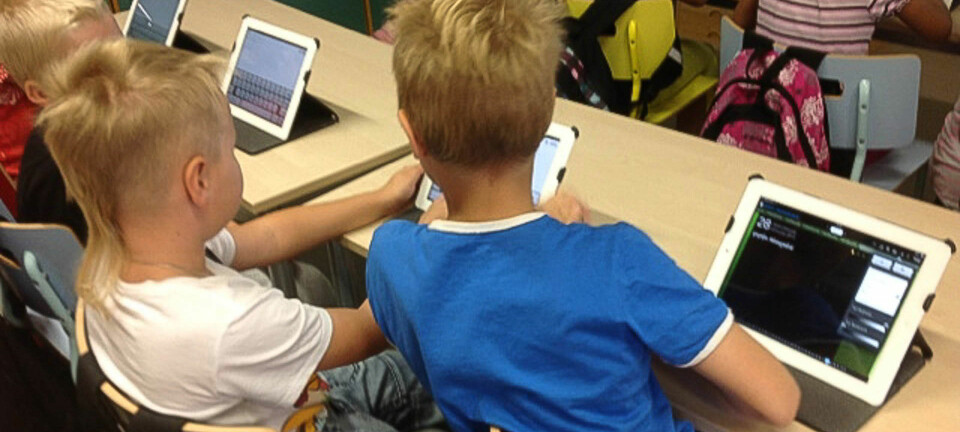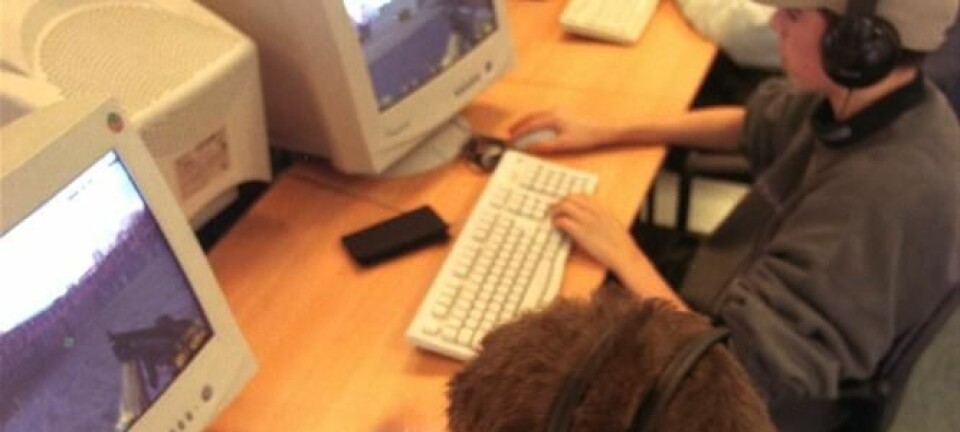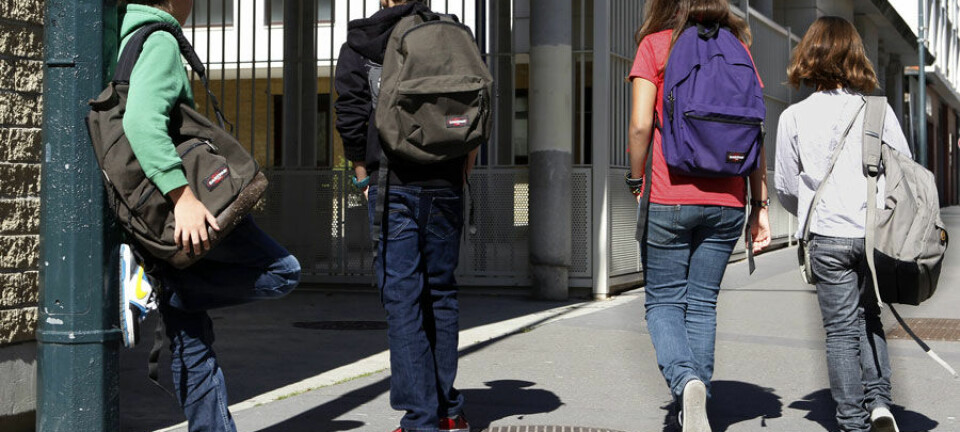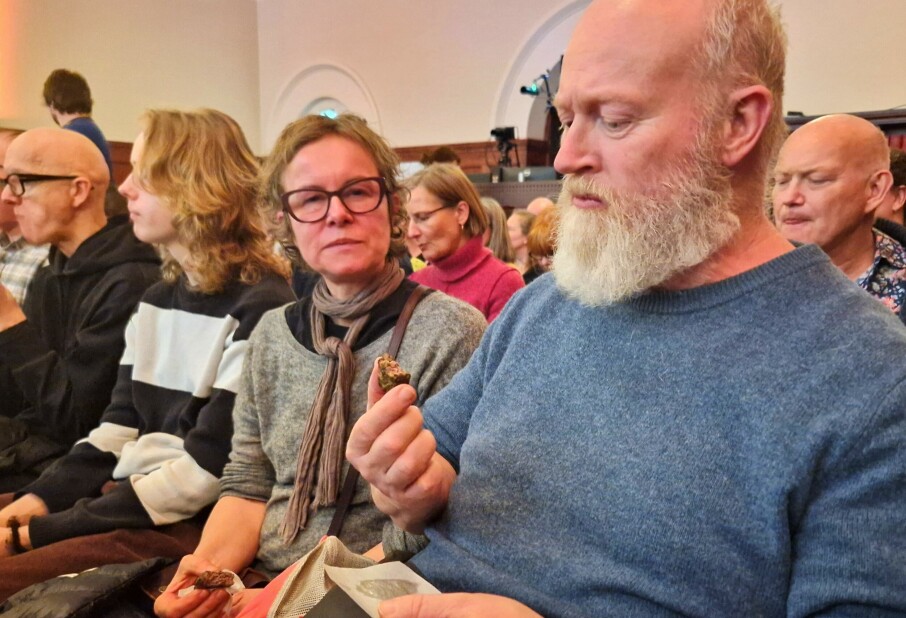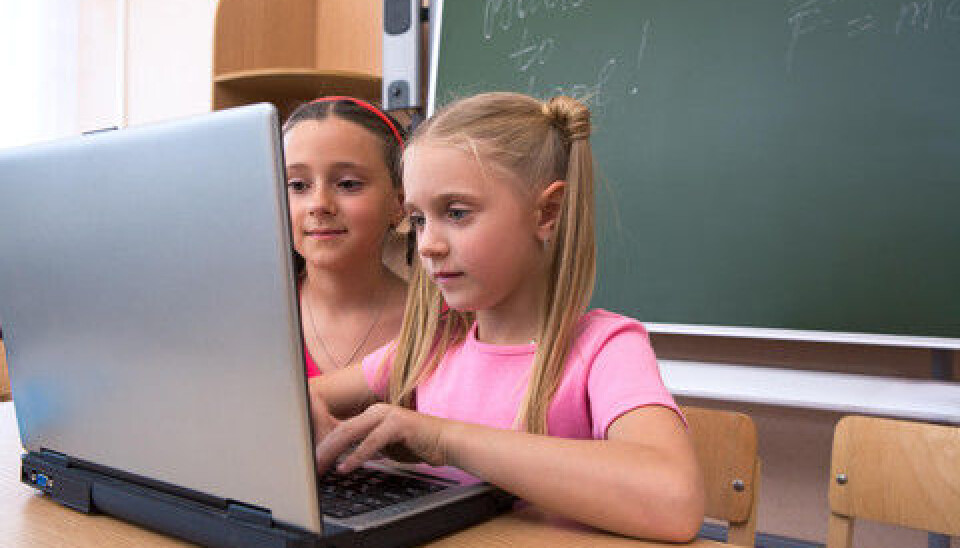
Pupils stressed out from school computers
Merely investing in school computers without a strategy is counter-productive, suggests Swedish research. Pupils struggle with finding reliable information online.
Denne artikkelen er over ti år gammel og kan inneholde utdatert informasjon.
Getting computers into every classroom has been a priority in Sweden, with more than 200 local authorities providing a PC for every single pupil and teacher. Achieving this ‘one-to-one’ model has been an aspiration ever since the US back in 2007 reported huge success from a similar investment.
Negative experiences
“It’s obvious that the almost over-the-top positive evaluations in the US influenced Swedish schools,” says Håkan Fleischer, who has delivered a thesis on how the one-to-one model has influenced education. He argues that both the evaluations and the research underpinning the model have been superficial, and have not provided the full picture.
Fleischer’s research shows that students had a number of negative experiences from their increased use of computers during class. The pupils become stressed and are distracted by social media - not only because of their own use, but also by fellow pupils. And even when they actively want to focus on school work, practicalities can become a barrier.
Can lead to inferior quality
In the worst-case scenario, the one-to-one method may mean that pupils get inferior quality information, according to Fleischer.
“The pupils jump into the deep end, gathering information without proper guidance. They get lost in a plethora of information that they are expected to navigate with ease. They become confused, and the guidance they are offered often focuses on being able to answer questions, rather than on asking them to reflect and put their knowledge into a new context.”
Fleischer’s study included a synthesis of previous research on the use of one-to-one in schools, interviews with pupils about their experiences, and an analysis of an educational task that focused on critical skills and depth of knowledge.
Experiencing stress
“The pupils are stressed, at times they feel that they don’t have enough time to digest what they have already learned and discuss it with fellow pupils,” he says in his thesis.
When pupils worked on assembling more in-depth knowledge, they preferred to supplement online searches with book-based information and teacher input.
“They distinguished between superficial digital learning and deeper, analogue learning,” Fleischer adds.
Vital to choose a strategy
He suggests that one way to address this issue in the classroom is to give students the skills to see computers, the Internet and social media in a broader context. Rather than seeing them as mere tools for knowledge gathering, we need to see them as another world to step into – where traditional educational rules about how to discover and learn about new things no longer applies.
“My research shows that when everyone gets their own computer, and we rely on the pupils’ ability to use them because they’re supposed to belong to the ‘digital generation’ and find their way around automatically, we’re heading down the wrong road,” Fleischer says.
“Whichever strategy we choose for our pupils, it’s vital to make an active choice on strategy – rather than to simply invest in computers and let the pupils get on with it.”
Translated by: Glenn Ostling







